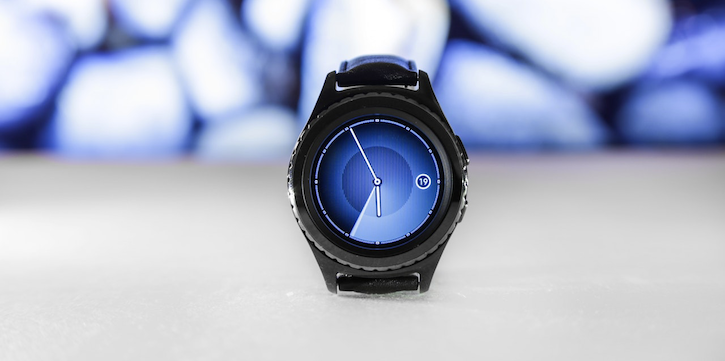Kaiser Uses Samsung Wearables to Reduce Hospital Admission Rates for Cardiac Rehab Patients
Using the wearable technology, the program completion rate improved by 74%.

Using Samsung smartwatches as an alternative to traditional cardiac rehabilitation, Kaiser Permanente decreased hospital readmission rates for patients to less than 2%, according to the findings published in the New England Journal of Medicine Catalyst.
On average, hospital readmission for patients with cardiac conditions is approximately 10 to 15%. But using the wearable technology, Samsung and Kaiser experts achieved an 87% patient completion rate — a 74% improvement over traditional center-based rehabilitation programs.
In the U.S., approximately 735,000 Americans have a heart attack. Physical inactivity, obesity and smoking can all contribute to an adverse cardiac event. But cardiac rehabilitation consisting of a prescribed exercise regimen, counseling, health education and behavioral and lifestyle risk reduction techniques is proven to have positive outcomes like reducing secondary events and rehospitalizations, study authors wrote.
While these programs are successful in controlled environments, they could present challenges for patients. Time commitments, expense and inconvenience and difficulty adopting necessary behavioral changes lead to just a 48% completion rate for home-based cardiac rehab and 50% for in-person rehab.
“Our goal was to develop a solution that would make cardiac rehabilitation fit more seamlessly into patients’ lives while improving clinical outcomes,” the study authors wrote.
In collaboration with Samsung, Kaiser experts created patient-facing mobile applications that were accessible on a smartphone and linked to a wearable.
Using Kaiser’s electronic health record, patients with clinical indication for cardiac rehabilitation were referred to the program.
When patients enrolled, they were assessed through a six-minute walking test. Patients then downloaded the digital health app and received a wearable device — Gear S3 and the Galaxy Watch.
The purpose of the wearable was for patients to select their preferred exercise plan, self-assessment and rating of perceived physical exertion and self-assessment of symptoms.
Clinicians accessed the data from the patient’s smartwatch through their dashboard. The dashboard was used to set exercise goals for the patients and to monitor adherence, compliance and progress.
Patients scheduled weekly virtual visits with case managers for disease modification and depression screening, behavioral coaching and support. Case managers helped patients navigate through the 36 session, eight-week program.
Wellness coaching was then offered for eight to 12 weeks after the completion of the program.
Currently, virtual cardiac rehabilitation is available in 12 of Kaiser’s 13 medical centers. The program has enrolled more nearly 2,400 patients and graduated 1,880. Compared to on-site cardiac rehab programs, the completion rate improved by 74%. Referrals to site cardiac rehabilitation also increase 44.5% since the home-based program launched, the study authors reported.
Only 27 patients were rehospitalized for any cause within 30 days of program completion — 17 were cardiac-related.
“This program took a fresh, digital first approach to cardiac rehabilitation and put control in patients’ hands,” said Peter Koo, M.S., corporate senior vice president and head of the health service team of the Mobile Communications Business at Samsung Electronics. “It produced higher program completion rates than programs requiring excessive trips to the doctor’s office.”
Get the best insights in digital health directly to your inbox.
Related
Fitbit Premium to Offer Personalized Health and Fitness Programs to Subscribers
How Wearable Tech Can Improve Patient Outcomes
Apple's Heart Study Shows Positive Results in Detecting A-Fib
Podcast: Match Made in Hospitals — Patient-Matching Technology Can Improve Healthcare
September 21st 2021Clay Ritchey, CEO of Verato, highlights the administrative and financial benefits that patient-matching technology can provide hospitals and health systems, as well as how it can improve the patient experience.
Podcast: Using Digital Solutions to Address Technology Shortfalls with Citius Tech Senior VPs
July 29th 2021In an interview recorded earlier this year, Chief Healthcare Executive Associate Editorial Director Mary Caffrey spoke with 2 leaders of Citius Tech about meeting healthcare challenges with digital solutions.